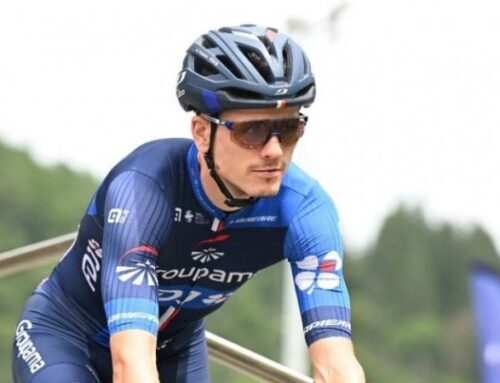
The 2024 Tour de France promises to be epic with a gravel stage and a decisive individual time trial Paris – With several premieres and an anticipated battle between four cycling stars, the 111th Tour de France 2024 is set to be a historic edition. [expander_maker id=”1″ ] For the first time, the world’s biggest cycling race will commence in Italy and conclude in Nice, not Paris, due to the Olympic Games. Similar to the legendary tight battle of seconds in 1989, the next Tour (June 29th to July 21st) will be decided in an individual time trial, following four mountain finishes and a gravel stage.
“It’s going to be epic,” said defending champion Jonas Vingegaard during the presentation of the route at the prestigious Palais de Congrès in Paris on Wednesday. The women’s Tour 2024 will take place in mid-August. The race will start in Rotterdam and end at the famous hairpin bends of Alpe d’Huez.
Anticipated Four-Way Battle
Two-time Tour winners Tadej Pogacar and Vingegaard, time trial world champion Remco Evenepoel, and Bora-hansgrohe’s key transfer, Primoz Roglic, are expected to engage in a breathtaking four-way battle across 21 stages and 3,492 kilometers. Locally, all eyes will be on Felix Gall, who won the queen stage of this year’s Tour and was subsequently named Austria’s Sportsman of the Year 2023.
The organizers have prepared everything for a memorable Tour, where each top star can showcase their strengths. Additionally, up to eight possible sprint finishes are expected, with Mark Cavendish hoping for his 35th stage victory. This would distance him from Eddy Merckx and make him the sole record holder.
Starting in Florence, the first four days of the race will take place in Italy, also commemorating the Italian legend Marco Pantani. The first stage will end in Rimini, where Pantani died from a cocaine overdose in 2004, while the second stage will start in his hometown of Cesenatico.
On Gravel
The route then heads to the French Alps, where an early challenge awaits at the legendary Col du Galibier. Subsequently, the route heads towards Paris, where the ninth stage, a gravel stage, is expected to be a spectacle. The riders will need to navigate 14 sections of loose ground, covering a total of 32 kilometers.
After the first rest day in Orleans, the peloton will journey to the Pyrenees. The 15th stage will conclude on the Plateau de Beille, with nearly 5,000 meters of elevation, making it the most demanding day in the mountains. In the final week, three stages in the Alps await the riders. The 19th stage, featuring the 2,802-meter-high Cime de Bonette and the mountain finish in Isola 2000, stands out. In just 145 kilometers, riders will face 4,600 meters of elevation.
Decision in the Time Trial
A highly challenging individual time trial from Monaco to Nice covering 35 kilometers will conclude the Tour. The winner will be determined on the Promenade des Anglais, along the Mediterranean coast, with organizers hoping for a similarly thrilling conclusion as in 1989. Back then, Frenchman Laurent Fignon and Greg LeMond engaged in a memorable battle against the clock in Paris. Ultimately, the American won the yellow jersey with an eight-second lead. It remains the closest Tour decision in history.
Due to the Summer Games in Paris, the women’s Tour will not start on the final day of the men’s race as it did previously. The Grand Départ will take place in Rotterdam on August 12th, marking the first time it commences abroad. The route will cover eight stages and 946.3 kilometers southward. On the second day, two stages will be held in Rotterdam. The overall winner will be decided on the last stage on August 18th, an arduous day in the Alps with nearly 4,000 meters of elevation from Le Grand-Bornand to Alpe d’Huez. (APA, 25.10.2023)[/expander_maker]
About the author : Philo
Latest videos
Join our mailing list today
Insider offers & flash sales in your inbox every week.
Curabitur non nulla sit amet nisl tempus convallis quis ac lectus dolor sit amet, consectetur adipiscing elit sed porttitor lectus.



